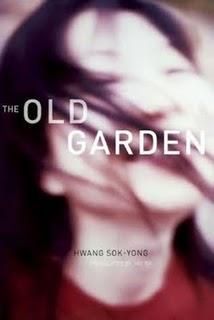The Old Garden

A garden is a metaphor for revolution. When painstakingly cared for, dry and barren ground can eventually yield the most beautiful of things. A garden can change an unruly landscape to an ordered plot, produce food and purpose, and forever capture the energy of a gardener with loyalty, conviction, and a love of what it could become. It can be simple in activity, process, and outcome, yet incredibly intricate and an entity all its own.
Many of us will never live this metaphor and will never have to face the difficulties the characters in The Old Garden must confront. After eighteen years of political imprisonment, South Korean Hyun Woo is freed only to find that the Seoul he once knew is gone and the woman he loves is dead. In this beautifully written book, the author uses her diaries and letters, woven with the Hyun Woo’s attempts to narrate his own past and present, to chronicle a man trying to find footing on the soil he fought to change, and face his choices and regret.
The novel’s world renowned and accomplished author, Hwang Sok-Yong has confronted these issues in his own life. Born in 1943, Sok-Yong has been imprisoned and exiled in the name of writing about his country, and his characters emanate a dedication and love of their home that is undoubtedly autobiographical. The author’s vivid imagery and veridical descriptions of the activists hiding “underground,” the aftermath of the Kwangju Massacre ,and torture at the hand of prison guards is affecting. Chills ran down my entire body when I read the main character Hyun Woo reflect, “Was it really possible for us—and there was not even a handful of us, and we were so young—to change the world with nothing but our noble intentions?” This was not just a story; this was something the author had truly lived.
But a garden can also be a symbol of more than revolution, and _The Old Garden__ _is first and foremost an incredible tale of a tragic love that grew despite all odds. While hiding in the town of Kalmae, Hyun Woo falls in love with a beautiful art teacher and ally of the movement. Beyond the already complex life of a political fugitive, he must now battle issues without a clear right or wrong, oppressed or oppressor, power or people. Must a revolutionary sacrifice their own bliss for the greater purpose? How can a revolutionary reconcile that he or she will most likely never experience what they fought to win? During one of the most poignant and meaningful moments in the story, he reads his lover’s diary entry about a day they washed laundry and fished in the sun. She writes, “What seems so insignificant, the everyday tasks of a simple life, is in fact the most important part, isn’t it?” The answer is yes, but for the revolutionary, it is anything but simple.
To survive the unfathomable emptiness in prison, Hyun Woo manages to grow a small garden beneath his crumbling cell wall with seeds gathered from rare trips outside of solitary confinement. Despite the lack of sun, of good water, and of real soil he is able to keep the small plants alive, relishing their growth and nurturing them constantly, until the winter comes and frost covers his walls. And while the conditions may have killed each flower and destroyed any lasting life, it was in the gardening itself that he found meaning.